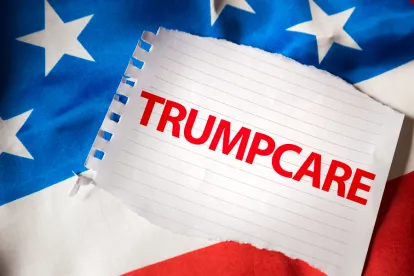President Donald Trump signed the Federal Register Printing Savings Act of 2017 (the Act) on January 22 to end the two-day government shutdown. In addition to funding the government for two-and-a-half weeks, the Act delays the onset of the Affordable Care Act’s (ACA’s) “Cadillac Tax” by two more years. The Cadillac Tax was originally intended to go into effect in 2018, but President Obama delayed the effective date until 2020. The Act now delays the Cadillac Tax until 2022.
The Act also affects implementation of two other ACA taxes: the medical device tax has been delayed until 2020; and while the Health Insurance Tax will be collected this year, it will be suspended during 2019 and then come back in 2020. The Act also extends the Children’s Health Insurance Program funding for six years.
The Cadillac Tax is a 40% tax on the value of employer-sponsored health coverage that exceeds certain benefit thresholds. It is widely unpopular with employer groups and, as we have previously reported, Congress has expressed a strong bipartisan desire to repeal the Cadillac Tax entirely.
In the meantime, the US Department of the Treasury has not issued guidance on the Cadillac Tax since before the initial delay, and therefore, it is likely that the Act will further delay any additional Cadillac Tax guidance. (Read the department’s notices here and here.) We will keep our clients posted on further developments.



 />i
/>i
